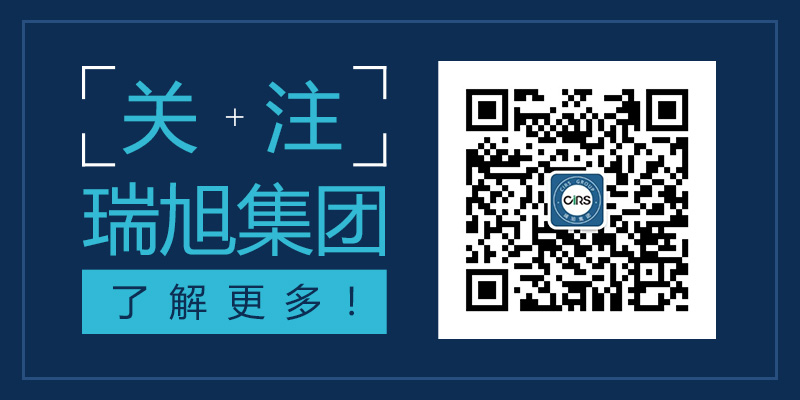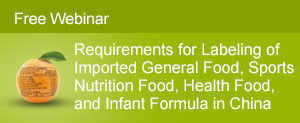On 1 October 2015, the strictest “Food Safety Law” will come into force. In order to implement the law better and ensure the food safety, Hangzhou CIQ made a comprehensive interpretation on the new requirements of the Food Safety Law.
1. New requirements on subject responsibilities
1.1 It is clearly stipulated that the subject responsibilities of food safety issues belong to food manufacturer, distributor and supervision department.
1.2 Importers should establish the verification system of oversea exporters and manufacturers. AQSIQ has published the Administrative Measure of Verification and Examination to the Oversea Enterprise by Food Importer in China (exposure draft). Public could give opinions and advice before 9 October 2015.
1.3 Importers should establish the product recalling system, and CIQ will strengthen the examination of this system.
1.4The oversea manufacturer registration system for imported food will be carried forward. Apart from the meat, aquatic products, dairy products and cubilose, more categories of imported food will be included, and then more oversea manufacturers will need to register in the future.
1.5 The establishment of food safety entire process traceability system is explicit. With the update of the filing system of imported food importer and exporter, CIQ will strengthen the supervision on the records of food and food additives import and sales.
2. The new requirements on the label
According to the requirement of the second paragraph in the article No.125 of the new Food Safety Law, if there is a defect in the label, instruction of food and food additives, but the defect has no effect on food safety and will not mislead consumers, 10 times compensation will not be applicable to this situation. The rules of label defects identification were given by Hangzhou CIQ as following.
1. New requirements on subject responsibilities
1.1 It is clearly stipulated that the subject responsibilities of food safety issues belong to food manufacturer, distributor and supervision department.
1.2 Importers should establish the verification system of oversea exporters and manufacturers. AQSIQ has published the Administrative Measure of Verification and Examination to the Oversea Enterprise by Food Importer in China (exposure draft). Public could give opinions and advice before 9 October 2015.
1.3 Importers should establish the product recalling system, and CIQ will strengthen the examination of this system.
1.4The oversea manufacturer registration system for imported food will be carried forward. Apart from the meat, aquatic products, dairy products and cubilose, more categories of imported food will be included, and then more oversea manufacturers will need to register in the future.
1.5 The establishment of food safety entire process traceability system is explicit. With the update of the filing system of imported food importer and exporter, CIQ will strengthen the supervision on the records of food and food additives import and sales.
2. The new requirements on the label
According to the requirement of the second paragraph in the article No.125 of the new Food Safety Law, if there is a defect in the label, instruction of food and food additives, but the defect has no effect on food safety and will not mislead consumers, 10 times compensation will not be applicable to this situation. The rules of label defects identification were given by Hangzhou CIQ as following.
| No | Requirements |
| 1 | The contents should be true. If the content in the label is false, including authenticity problems of name, ingredients, net weight, production date and shelf life, it does not belong to the scope of “defect”. |
| 2 | It should be in accordance with standards of GB 7718-2011, GB 28050-2011, and GB 13432-2013. The mandatory contents in the food safety standards should be all indicated, and the labeling method should comply with the regulations. |
| 3 | It should not violate any prohibition article. |
| 4 | If the label content is obscure, or contents like production date and shelf life are unrecognized, they do not belong to the scope of “defect” |
| 5 |
There is no misleading content a. Must not mislead the food function. b. Must not mislead the conception, for example, “pure green”, “no pollution”, “do not contain any additives” are forbidden to be indicated in the label. |
3. The new requirement on the supervision method
According to the requirement of the new Food Safety Law, CIQ departments are in charge of the supervision in food importation and exportation, and FDA departments are responsible for the supervision in food circulation. As the information we get from Hangzhou CIQ, Zhejiang CIQ is drafting the Zhejiang Entry-exit Inspection and Quarantine Bureau Work Standard for imported food conformity assessment. When this standard is implemented, Zhejiang CIQ will carry out the hierarchical management for imported food and import enterprises. This measure will significantly reduce the time and cost in the customs clearance inspection. The specific implementation rules will be published in the near future, and CIRS food team will continue to focus on it.
Highlights of this work standard for imported food conformity assessment
1. Make risk classification of imported food, develop a “high risk imported food list”. Food out of the list is defined as general risk food, which can be conducted by conformity assessment.
2. Conformity assessment measures include release by document examination, release by examination and inspection on site, and release by detection.
3. Conduct hierarchical management for imported food enterprises, the supervision level is divided into level 1, level 2 and level 3. Enterprises who do not apply for the hierarchical management will be divided into level 3 automatically.
| Enterprise level | release by document examination | release by examination and inspection on site | release by detection |
| Level 1 | 75% | 20% | 5% |
| Level 2 | 40% | 40% | 20% |
| Level 3 | 0% | 40% | 60% |
4. Compared with the implementation ratio of examination and inspection on site and detection at present, when this standard is implemented, the ratio of examination and inspection on site will considerably increase, and the ratio of sampling detection will decrease.
5. The main reference factors for enterprise grading are: enterprise legal compliance and integrity records, quality management level, self-checking and self-control conditions, quality and safety conditions, warehousing facilities and the imported food quality.
Recently, different administrative measures (exposure drafts) related to the new Food Safety Law were continuously published, and CIRS speculated that the official versions will be released and come into force in the short run. Relevant enterprises should pay more attention to the changes of related regulations and policies, and deal with the new requirements of Food Safety Law. CIRS food team will continue to focus on the subsequent progress.
Contact us
Ms. Alice Yang, Food & Health Products, CIRS China
11F Dongguan Building, 288 Qiuyi Road, Binjiang District, Hangzhou, China, 310020
Tel: +86 571 8720 6555 | Fax: +86 571 8720 6533
Email: Alice.Yang@cirs-group.com






